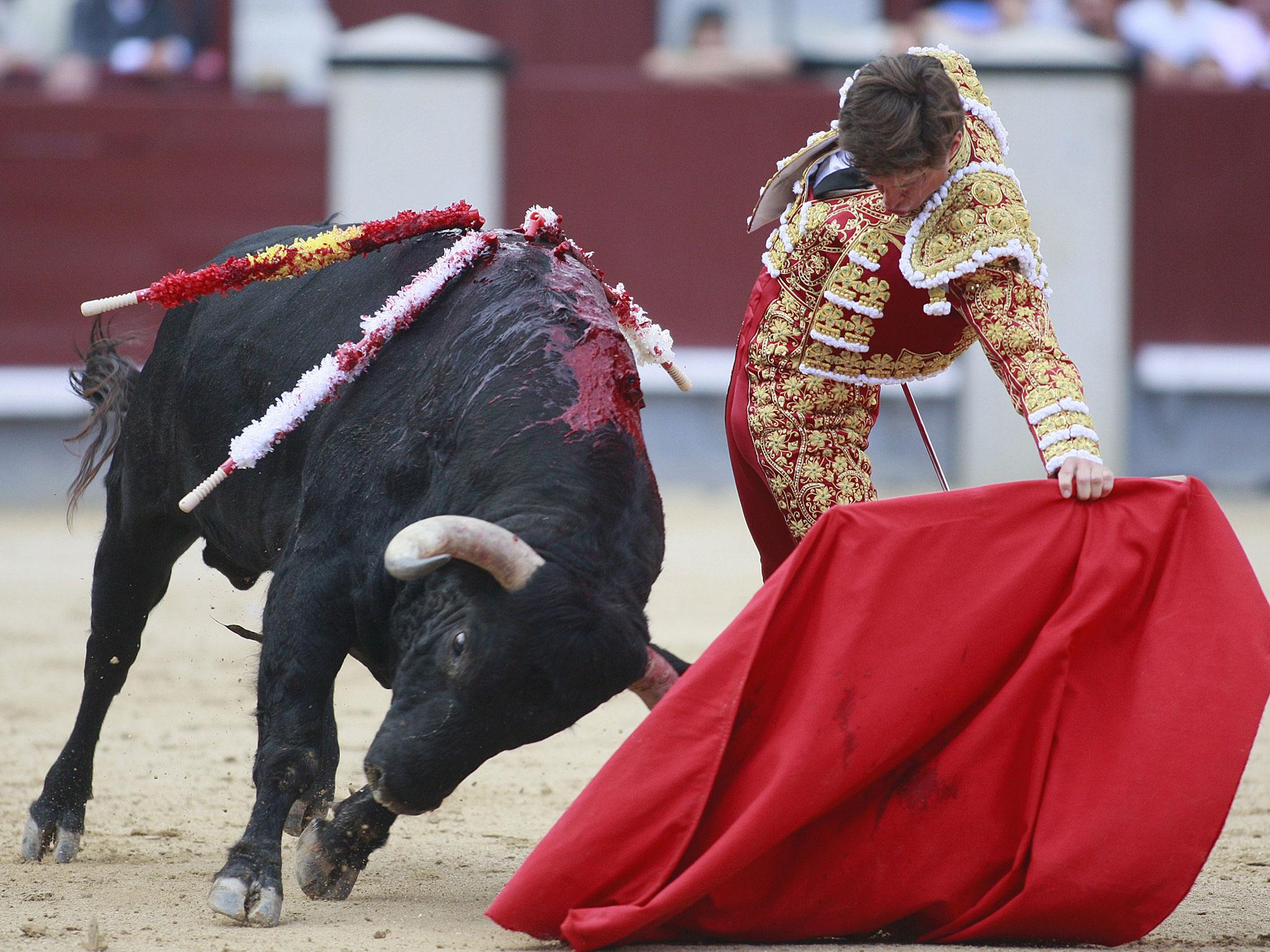Spanish province moves to ban bullfighting, defying Madrid's conservative government
Spain's conservative government has previously declared bullfighting a 'cultural asset'

A Spanish province is bringing in laws aimed at eliminating bullfighting by the back door despite opposition from the country’s government and constitutional court in Madrid, which has ruled that the practice is a protected part of “common cultural heritage”.
The Balearic Islands, which include popular holiday destinations such as Majorca, Minorca, and Ibiza, tried to ban the bloodsport in 2016 but was stopped in its tracks after Spain’s constitutional court ruled that local provinces do not have the power to stop the practice.
Spain’s conservative Partido Popular (PP) government in 2013 declared the practice a cultural asset, allowing it to draw on public funds – a move most Spanish people oppose, according to opinion polls.
On Monday the Balearic Parliament – a regional assembly – voted again to introduce strict laws expected to effectively make bullfighting unviable including a ban on the use of horses and sharp implements the rings, a 10-minute limit on fights, and the prohibition of alcohol in stadiums.
New tough rules on the transport, origin, age, and weight of bulls; a ban on both slaughter and return to ranches after fighters, and a strict requirement for full veterinary inspections are also aimed at effectively eliminating the practice, which has taken place in Spain for centuries. The rules will be enforced by fines of up to €100,000.
Animal cruelty NGOs welcomed the new approach, with one saying the new laws would relegate the “torture of bulls for public entertainment” to “the annals of history” in the province. It remains to be seen what the exact effect of the law will be on the availably of bullfights, however.
Bullfighting currently takes place in three rings in Mallorca; at Alcudia, Muro and Palm – but the sport is very much a minority pursuit in 21st century Spain. An Ipsos MORI poll of Spanish citizens conducted for the Humane Society International found that only 29 per cent of the country’s population support bullfighting, and that three-quarters had not attended a fight in the last five years.
The new Balearic Islands laws were backed by the centre-left PSOE party, left-wing Podemos, and local Mes parties in the regional assembly, but opposed by the PP and the centre-right liberal Ciudadanos party.
Two other Spanish regions, the Canary Islands and Catalonia, have also both tried to pass total prohibitions on bullfighting but in October 2016 nine of 12 judges in the country’s Constitutional Court found that Catalonia’s ban was unlawful on the basis that the practice was “one more expression of a cultural nature that forms part of the common cultural heritage”. The legal status of the Canary Islands’ outright ban is unclear in light of that judgment.
Joanna Swabe, a director at the Human Society Europe, said: “Taunting and killing bulls for entertainment is a brutal anachronism and so this is a very satisfying victory for compassionate policy making.
“Rather than allow the Constitutional Court ruling to stand in the way of ending the cruel spectacle of bullfighting in the region, a cross-party group of politicians got creative to effectively ensure that the torture of bulls for public entertainment is relegated to the annals of history on the Balearic Islands.
“This vote shows that a full ban is not strictly necessary to end the practice of bullfighting, and that compassion can win the day where there is strong public and political will to end animal cruelty.
“Around 30 towns across the Balearic Islands had already voiced their opposition to bullfighting and so this measure to halt both bullfights and bull fiestas enjoys the broad support of both locals and the international community alike.”
Join our commenting forum
Join thought-provoking conversations, follow other Independent readers and see their replies
Comments
Bookmark popover
Removed from bookmarks